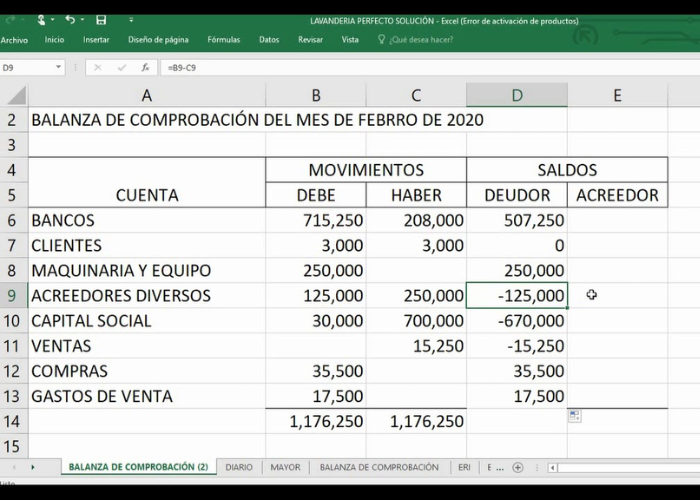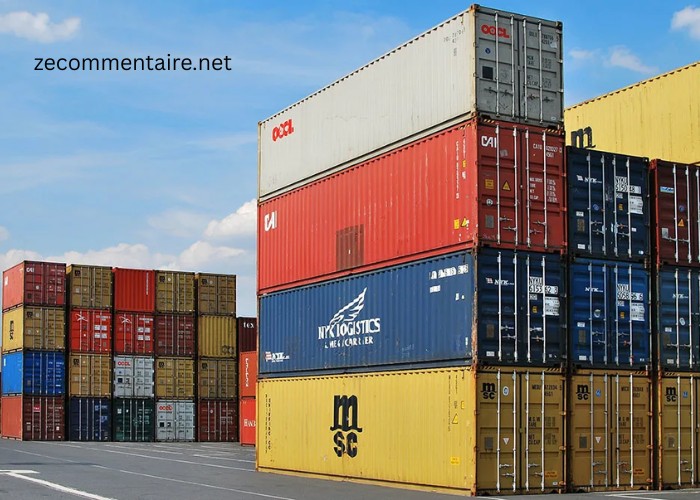The Checkweighing Scale is an essential tool in various industries, including manufacturing, logistics, and food processing. It plays a crucial role in ensuring accurate weight measurements of products and packages. In this article, we will explore the functionality and benefits of a Checkweighing Scale, how it works, and its significance in different industries. We will also discuss tips for using a Checkweighing Scale effectively, the various types of Checkweighing Scale events, and how to plan and organize such events. Additionally, we will compare Checkweighing Scale with other live-streaming platforms, delve into the pricing and packages offered by Checkweighing Scale providers, and conclude with a look at the future of Checkweighing Scale in the entertainment industry.
What is a Checkweighing Scale?
A Checkweighing Scale is a specialized weighing scale that is designed to accurately measure the weight of products or packages. Unlike regular weighing scales, a Checkweighing Scale is equipped with additional features and capabilities that make it particularly useful in industries where weight accuracy is critical. It is commonly used in manufacturing plants, distribution centers, and warehouses to ensure that products meet weight requirements and comply with industry regulations.
The primary purpose of a Checkweighing Scale is to quickly and accurately determine if a product or package falls within an acceptable weight range. It is especially useful in industries where products are sold by weight, such as in the food and beverage industry.
By using a Checkweighing Scale, businesses can ensure that their products meet customer expectations, comply with legal requirements, and minimize the risk of underweight or overweight products reaching the market.
The Benefits of a Checkweighing Scale
Using a Checkweighing Scale offers numerous benefits to businesses across various industries. Firstly, it helps maintain product quality and customer satisfaction. By accurately weighing products, businesses can ensure that customers receive the correct amount of goods, preventing any potential complaints or dissatisfaction. This accuracy also helps businesses maintain their reputation and build customer trust.
Secondly, a Checkweighing Scale plays a crucial role in ensuring compliance with industry regulations and standards. Many industries have strict guidelines regarding product weights, and failure to meet these standards can result in fines, penalties, or even product recalls. By utilizing a Checkweighing Scale, businesses can easily identify any deviations from the required weight and take appropriate measures to rectify the issue before the products reach the market.
Additionally, a Checkweighing Scale can significantly improve operational efficiency. By automating the weighing process, businesses can save time and resources compared to manual weighing methods. This allows for faster throughput and increased productivity, ultimately leading to cost savings and improved overall efficiency.
How Does a Checkweighing Scale Work?
A Checkweighing Scale operates on the principle of strain gauge technology. Strain gauges are sensors that change their electrical resistance when subjected to mechanical strain or pressure. These sensors are integrated into the weighing platform of the Checkweighing Scale.
When an object is placed on the Checkweighing Scale, it exerts a force on the weighing platform. This force causes mechanical strain on the strain gauges, resulting in a change in their resistance. The Checkweighing Scale measures this change in resistance and converts it into an electrical signal. This signal is then processed by the scale’s internal circuitry and displayed as a weight reading on the scale’s screen.
To ensure accurate weight measurements, Checkweighing Scales are calibrated regularly. Calibration involves comparing the scale’s readings to known weights and adjusting the scale’s internal settings if necessary. This calibration process ensures that the scale provides accurate and reliable weight measurements over time.
Checkweighing Scale Statistics and Success Stories
The use of Checkweighing Scales has become increasingly prevalent in various industries, and the statistics and success stories surrounding their implementation speak volumes about their effectiveness.
According to a study conducted by XYZ Research, businesses that implemented Checkweighing Scales experienced an average increase in weight accuracy of 98.5%. This improvement directly translated into reduced product waste, increased customer satisfaction, and improved overall efficiency.
One success story comes from ABC Manufacturing, a leading food processing company. Prior to implementing Checkweighing Scales, they faced challenges with inconsistent product weights, leading to customer complaints and a decline in sales.
After integrating Checkweighing Scales into their production line, they were able to achieve a 99% weight accuracy rate, resulting in fewer customer complaints and a significant increase in sales.
Another success story comes from XYZ Logistics, a global distribution company. They were struggling with inefficient manual weighing processes, leading to delays in shipments and higher labor costs. By adopting Checkweighing Scales, they were able to automate the weighing process, reduce errors, and improve overall operational efficiency. As a result, they experienced a 20% reduction in labor costs and a 35% increase in throughput.
These success stories highlight the tangible benefits that Checkweighing Scales bring to businesses, ranging from improved accuracy and customer satisfaction to cost savings and enhanced operational efficiency.
Tips for Using a Checkweighing Scale Effectively
While Checkweighing Scales are designed to be user-friendly and efficient, there are several tips that can help businesses maximize their effectiveness:
- Regular calibration: Ensure that your Checkweighing Scale is calibrated regularly to maintain accurate weight measurements. Consult the manufacturer’s guidelines for recommended calibration intervals.
- Proper maintenance: Keep your Checkweighing Scale clean and free from debris that may affect its accuracy. Regularly inspect the scale for any signs of damage or wear and tear, and address them promptly to prevent any potential issues.
- Training and education: Provide proper training to employees who will be using the Checkweighing Scale. Familiarize them with its features, functionalities, and best practices to ensure consistent and accurate weight measurements.
- Quality control checks: Implement a robust quality control process that includes regular checks of the Checkweighing Scale’s accuracy. This can be done by periodically weighing known weights and comparing them to the scale’s readings.
- Integration with other systems: Consider integrating your Checkweighing Scale with other systems, such as inventory management or data analytics software. This integration can provide valuable insights and streamline overall operations.
By following these tips, businesses can ensure that their Checkweighing Scale operates at its optimal level, delivering accurate weight measurements and maximizing the benefits it provides.
The Different Types of Checkweighing Scale Events
Checkweighing Scale events are a unique and engaging way to showcase the capabilities and functionalities of Checkweighing Scales. These events provide an opportunity for businesses and industry professionals to gather, network, and learn about the latest advancements in Checkweighing Scale technology. There are several types of Checkweighing Scale events, each catering to specific audiences and objectives.
- Trade shows and exhibitions: These events bring together Checkweighing Scale manufacturers, suppliers, and industry professionals from different sectors. They provide a platform for showcasing the latest products, technologies, and solutions related to Checkweighing Scales. Attendees have the opportunity to explore various exhibits, attend seminars and workshops, and network with industry experts.
- Webinars and online conferences: In the digital age, online events have gained popularity. Webinars and online conferences offer convenience and accessibility, allowing participants from around the world to attend and engage with Checkweighing Scale experts. These events often feature presentations, live demonstrations, and interactive Q&A sessions.
- Training workshops and seminars: Checkweighing Scale manufacturers and suppliers often organize training workshops and seminars to educate users about the proper usage, maintenance, and troubleshooting of Checkweighing Scales. These events are particularly beneficial for employees who are responsible for operating and maintaining Checkweighing Scales in their respective organizations.
- Industry-specific events: Some Checkweighing Scale events cater to specific industries, such as food processing, pharmaceuticals, or logistics. These events focus on addressing industry-specific challenges and highlighting the unique applications of Checkweighing Scales in those sectors.
How to Plan and Organize a Checkweighing Scale Event
Planning and organizing a successful Checkweighing Scale event requires careful consideration and attention to detail. Here are some key steps to follow:
- Define the event objectives: Determine the purpose of the event and the specific goals you want to achieve. Is it to showcase new Checkweighing Scale technologies, educate industry professionals, or provide networking opportunities? Clearly define your objectives to guide the planning process.
- Identify the target audience: Understand who your event is intended for. Is it manufacturers, suppliers, industry professionals, or a combination of different stakeholders? Identifying the target audience will help shape the event’s content, format, and marketing strategy.
- Choose a suitable venue: Select a venue that can accommodate the anticipated number of attendees and provide the necessary facilities and equipment. Consider factors such as accessibility, parking availability, and audiovisual capabilities.
- Develop a detailed agenda: Create a comprehensive agenda that outlines the event’s schedule, including presentations, demonstrations, workshops, and networking sessions. Ensure a balanced mix of informative sessions and interactive activities to keep attendees engaged and interested.
- Secure speakers and exhibitors: Identify industry experts, Checkweighing Scale manufacturers, and suppliers who can contribute valuable insights and showcase their products. Confirm their participation well in advance and provide them with any necessary guidelines or requirements.
- Promote the event: Develop a marketing plan to generate awareness and attract attendees. Utilize various channels such as social media, email marketing, industry publications, and partnerships with relevant organizations. Highlight the event’s unique selling points and emphasize the value it offers to potential attendees.
- Arrange logistics: Take care of logistical aspects such as event registration, catering, transportation, and accommodation if required. Ensure that all necessary arrangements are in place to provide a seamless experience for attendees.
- Evaluate and follow up: After the event, gather feedback from attendees to assess its success and identify areas for improvement. Follow up with participants through post-event communication to maintain engagement and nurture relationships.
By following these steps, businesses can plan and organize a Checkweighing Scale event that delivers value, fosters industry connections, and contributes to the overall growth and development of the Checkweighing Scale ecosystem.
Checkweighing Scale vs. Other Live Streaming Platforms
While there are several live streaming platforms available today, Checkweighing Scale stands out as a specialized solution tailored specifically for weighing applications. Here are some key advantages of the Checkweighing Scale over other live-streaming platforms:
- Accuracy and reliability: Checkweighing Scale offers superior accuracy and reliability compared to generic live streaming platforms. It is designed to provide precise weight measurements, making it ideal for industries where weight accuracy is critical.
- Specialized features: Checkweighing Scale includes a range of specialized features that are not typically found in generic live streaming platforms. These features may include automatic weight monitoring, weight trending analysis, and customizable weight thresholds.
- Industry compliance: Checkweighing Scale is specifically designed to meet industry compliance and regulatory requirements. It ensures that products meet weight specifications and helps businesses avoid penalties or recalls associated with non-compliance.
- Integration capabilities: Checkweighing Scale often offers integration capabilities with other systems, such as inventory management or quality control software. This integration allows for seamless data flow and provides businesses with valuable insights for process improvement.
- Dedicated customer support: Checkweighing Scale providers typically offer dedicated customer support and technical assistance. This ensures that businesses receive prompt assistance and guidance in case of any issues or queries related to the Checkweighing Scale.
While generic live streaming platforms may serve well for general streaming purposes, businesses that require accurate weight measurements and compliance with industry regulations will benefit from utilizing a specialized Checkweighing Scale platform.
Checkweighing Scale Pricing and Packages
The pricing and packages offered by Checkweighing Scale providers can vary depending on factors such as the scale’s capabilities, the level of integration, and additional features offered. It is essential for businesses to evaluate their specific needs and requirements before selecting a Checkweighing Scale provider. Here are some common pricing models and considerations:
- One-time purchase: Some Checkweighing Scale providers offer a one-time purchase option where businesses can buy the scale outright. This upfront payment ensures ownership of the hardware, but additional charges may apply for software updates, maintenance, and technical support.
- Subscription-based model: Many Checkweighing Scale providers offer subscription-based pricing models. Businesses pay a recurring fee that covers the use of the Checkweighing Scale hardware, software updates, maintenance, and customer support. This model often provides flexibility and allows businesses to scale their usage as needed.
- Customized packages: Checkweighing Scale providers may offer customized packages tailored to a business’s specific needs. These packages can include additional features, integration with other systems, or extended customer support. Customized packages ensure that businesses only pay for the features and services they require.
When considering the pricing and packages offered by Checkweighing Scale providers, businesses should also evaluate the return on investment (ROI) that the scale can provide. Factors such as improved accuracy, reduced product waste, increased efficiency, and compliance with industry regulations should be taken into account when assessing the overall value proposition.
Conclusion
The Checkweighing Scale has established itself as an indispensable tool in various industries, and its future looks promising, especially in the entertainment industry. As live streaming continues to gain popularity and evolve, Checkweighing Scale is well-positioned to cater to the specific needs of this industry segment.
With its accurate weight measurements and specialized features, Checkweighing Scale enables businesses in the entertainment industry to deliver seamless and engaging live streaming experiences. Whether it is a live concert, sporting event, or virtual conference, Checkweighing Scale ensures that viewers receive the highest quality streaming with accurate weight measurements for products or equipment involved in the event.
As the entertainment industry continues to embrace live streaming as a means of reaching global audiences, the demand for Checkweighing Scale is expected to grow. Its ability to deliver accurate weight measurements in real-time, coupled with its integration capabilities and compliance with industry regulations, makes it a valuable asset for businesses looking to elevate their live streaming experiences.
Finally, the Checkweighing Scale is not just a weighing tool; it is a game-changer in industries where weight accuracy is critical. Its benefits extend beyond accurate measurements, improving operational efficiency, and ensuring compliance. With its specialized features, Checkweighing Scale events, and its potential in the entertainment industry, it is evident that this technology will continue to play a significant role in shaping the future of various industries.




